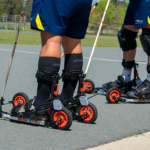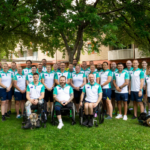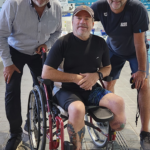
Physical activity is vital in managing pain
Did you know that this week is National Pain Week?
There are many Australians, including veterans, who live with chronic pain as part of their day-to-day.
National Pain Week
As part of National Pain Week, Chronic Pain Australia champions the needs of people living with chronic pain. To raise awareness of these needs they run the National Pain Survey. The results were published this week and they show that people who responded to the survey have a range of needs and experiences.
- 60% of respondents were referred to other health professionals such as physiotherapists and exercise physiologists. Assisting with physical activity, mobility and exercise were just some of the ways they helped.
- Many respondents want more government support for treatments, allied health services and exercise clinics.
- Respondents want GPs to advocate for broader community understanding that chronic pain is best managed by exercise and personal continuity of care.
Read the full results of the survey.
About chronic pain
Our friends at Mates4Mates made this short video. Nolan Woo is an exercise physiologist and talks about chronic pain.
Nolan shares some really important points.
- Just because you can’t see physical damage doesn’t mean the pain isn’t there.
- Pain is a combination of physical, emotional, social, environmental, and cultural factors.
If you know someone suffering chronic pain, showing them you understand that their pain is real can help their journey feel a little less lonely.
Nolan Woo, Mates4Mates Exercise Physiologist
We’ve seen how chronic pain can affect people’s ability to live active and healthy lifestyles, despite the fact that the Pain Management Network (a website provided by the NSW Government) says that physical activity is vital to managing pain. Staying active can improve strength and flexibility.
Opportunities in adaptive sport
Thankfully there are a range of adaptive sports where equipment is modified to help people participate where their pain would otherwise have stopped them.
Just recently during the Warrior Games we shared the story of Kerrie Tessier, the incredible veteran competitor whose recumbent bike allows her to cycle without aggravating the pain in her shoulder.
Social sporting activities for veterans of all ages
Adaptive sports are just one way that veterans experiencing chronic pain can stay active.
There are plenty of other opportunities out there for people with specific physical needs.
Many social sport and recreation activities are open to all ages and are welcoming communities, often run by veterans.
Find out more
If you’d like to learn more about opportunities in your area, shoot an email to support@veteransport.org.au or sign up to the VSA newsletter to stay in the loop.
Mates4Mates provide support and rehabilitation services to current and ex-serving ADF members and their families in times of need. For more information visit their website https://mates4mates.org/ or give them a call on 1300 4 Mates.




